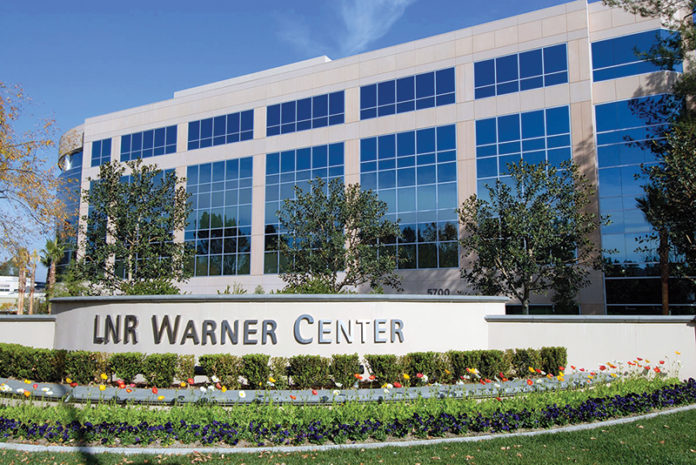California employers who have long despised the state’s so-called PAGA law got a partial victory last week when the U.S. Supreme Court struck down one important portion of the controversial act.
The ruling on June 15 was seen as a win by local business groups, particularly the Valley-based California Business and Industrial Alliance, or CABIA. The group, founded by Tom Manzo, was formed to lobby explicitly against PAGA. It submitted an amicus brief in support of the Valley company involved in the suit.
“These lawsuits become gigantic, super expensive,” said Manzo.
PAGA stands for the Private Attorneys General Act. It is unique to the state and deputizes employees to file suit against their employers for labor code violations that normally would be handled by state regulators. Because of the way it works, many businesses claim, violations can cost businesses dearly – perhaps hundreds of thousands or even millions of dollars instead of thousands.
The Supreme Court ruling basically upholds the right of employers to use internal arbitration agreements to settle disputes with employees instead of having those disputes become PAGA suits, which generally are far more expensive.
The decision comes from an 8-1 ruling in the case of Viking River Cruises v. Moriana, which reached the Supreme Court in March. Angie Moriana, a former sales representative for Viking River Cruises Inc. in Woodland Hills, had filed a PAGA lawsuit against the company alleging that it violated several California labor codes.
Moriana’s employment agreement contained a provision to resolve disputes through arbitration, not class or collective lawsuits. Viking’s motion to compel arbitration was initially rejected under a precedent that PAGA claims could not be compelled to arbitration under state law.
A significant factor in the court’s decision was the Federal Arbitration Act, which provides the ability to have judicial facilitation over a private dispute resolution. Justice Samuel Alito wrote in the decision that the Federal Arbitration Act overrides a precedent that requires PAGA claims must stay in court.
David G. Jones, a partner at the Encino-based Lewitt Hackman law firm, said that the ruling gives employers the opportunity to draft arbitration clauses that would help them avoid PAGA claims but would not prevent employees from pursuing traditional class actions.
Jones provided a theoretical example of how a PAGA claim could play out given the precedent set by the Viking River Cruises decision. An employee who signs a voluntary arbitration agreement with a class action waiver during the hiring process later alleges she and her colleagues are subjected to various violations of labor law, such as failure of the employer to provide rest or meal breaks.
In the past, the aggrieved employee may have consulted with an attorney who brought a PAGA claim, which allowed the employee to file a lawsuit and possibly recover penalties not only for herself, but for other similarly aggrieved employees and the state of California.
However, now the employer could seek dismissal of the lawsuit, sending the claim to a private arbitration process that would not include the colleagues and the state.
“If the arbitration clause and class action waivers are valid, this could effectively block PAGA and class claims for employees, thereby limiting their recovery to individual claims for the damages they allege,” Jones wrote.
“Practically speaking, many employers will be looking to have employees sign these documents, to the extent that they are valid under California law.”
Jones said that the 8-1 vote was a notable part of the ruling because the court’s liberal justices voted in favor of Viking River Cruises. Justice Clarence Thomas, a conservative, cast the dissenting vote.
Manzo, of the CABIA group, said that under PAGA, “you’re always forced to settle these types of lawsuits,” Manzo said. “So, I think now, if it can just be between the disgruntled employee and the employer, that’s the way it should be.”
Manzo added that in addition to the financial and time-based commitments needed by companies to take on PAGA lawsuits, another consequence comes in the form of stricter work cultures.
“Imagine if you’re somebody who’s been with a company for years and all of a sudden, you have to take your lunch before five hours (of work) and you don’t do it a couple times in a row. Now you’re being written up,” Manzo said, explaining that the theoretical employer became strict to avoid a PAGA claim.
“It’s counterintuitive to a flexible workplace,” said Manzo.
One of several local businesses that supports CABIA is Town & Country Event Rentals, an event and party rentals business in Van Nuys.
Town & Country’s president, Richard F. LoGuercio, said his business has spent millions of dollars fighting and settling about 25 PAGA cases in the past few years, one of which resulted in a $900,000 settlement.
“I just settled with a bunch of bogus PAGA claims (and) had to write a settlement check for $75,000 just this morning,” LoGuercio said, adding that his business has arbitration agreements upon hiring.
“I think it’s going to be better (with the ruling) but still, it’s just ridiculous.”
Scott Nelson, the Public Citizen Litigation Group attorney who represented Moriana, wrote to the Business Journal that his team was disappointed with the Supreme Court’s decision. However, Nelson added that there was a silver lining.
“At the same time, we’re pleased by the court’s recognition that the Federal Arbitration Act cannot be used either to waive substantive claims under state or federal law or to waive the right to assert all representative claims,” Nelson wrote in an email.
As it stands, the effect of the decision on California workers is not conclusive, according to Nelson.
“For now, the decision will allow enforcement of arbitration agreements that bar arbitration of PAGA claims for penalties attributable to violations suffered by other employees, but as Justice (Sonia) Sotomayor suggests, California may be able to protect its ability to ensure that those claims can be litigated by clarifying its standing law,” he wrote.
